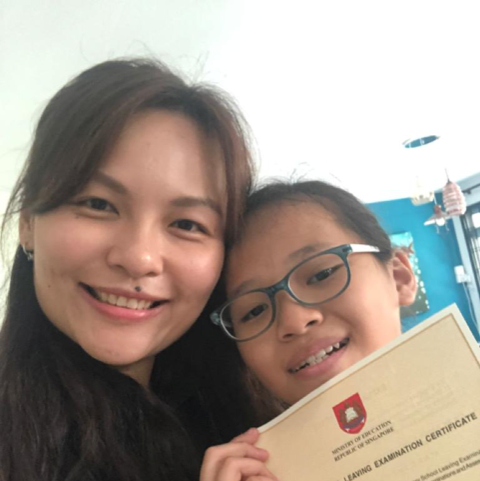With the release of the Primary School Leaving Examination (PSLE) results just around the corner, emotions will likely be running high among some families and students awaiting results.
Anxiety, butterflies in the stomach and a pervasive sense of unease… I remember the results-day jitters well, given that my 13-year-old daughter took her PSLE last year.
In the lead-up to results day, she had been a jumpy bundle of nerves. On the other hand, my husband and I had remained largely unruffled.
I’ll explain why: Although I had hoped that my daughter would do well for her exams, a series of humbling events that had happened over the year made me realise that there are more important things that matter to me as a parent, such as my child’s health and wellbeing.
At the start of the 2019 academic year, my daughter fell severely ill due to multiple bouts of infections. She was hospitalised thrice. While her peers were busy with school, we were shuttling between home, the hospital and various doctor appointments.
Even when she was well enough to return to school after a long medical leave, she continued to struggle with the after-effects of chronic abdominal pain and fatigue for almost half a year.
Besides grappling with poor health, my daughter was also stressed trying to catch up on her missed lessons. One of the consequences of her prolonged illness was that it was hard for her to concentrate in class.
Her school work suffered and she barely passed her term assessments.
Despite our constant reminders that good health is ultimately the most important thing, it did not erase my daughter’s anxiety over her inability to keep up in class and her fear of doing poorly in or failing the national examinations. It did not help that she has a naturally anxious temperament.
For me, any worries that I may have had about her impending exams were overshadowed by my anxiety about her mental health. I was on high alert for signs of depression as she looked increasingly listless and could not muster up the energy to engage in her favourite activities, like drawing and running.
I remember the times when she would be reduced to tears while trying to keep up with an ever-growing pile of missed school work and homework.
At one point, I wondered if I would ever get my once-cheerful, healthy and active daughter back again.
The whole episode made me truly realise that academic excellence counts for nothing if my child does not have good physical and mental health.
Good stress, bad stress
At the same time, I saw how some parents were pushing their children who were taking the PSLE that year to the brink of exhaustion. For instance, an acquaintance lamented that her child was “lazy” and she was worried that she was not trying hard enough. This was despite her child juggling back-to-back tuition lessons after school.
I also heard that several of my daughter’s classmates were sleeping past midnight as they were doing tons of revision, tuition work and mock exam papers. As a result, they were tired and listless in school.
It made me wonder if that was the best approach to education and examinations. How did 12-year-olds end up becoming busier than some working adults? And where do we, as parents, draw the line between helping our children reach their potential and pushing them over the edge?
My view is that experiencing some stress is an inevitable part of life. Psychology studies also show that moderate amounts of pressure can be healthy and help build resilience in children, but too much of it is detrimental to mental health.
For me, I felt that the lessons that my daughter had learnt from navigating the challenging moments that year were more important than the number on her exam slip.
On a particularly challenging day, I remember telling her that the PSLE results would not be the be-all and end-all in her education path. No matter her score, I believe there would be many more opportunities for her to shine and follow her dreams as long as she keeps trying her best.
Buoyed by words of encouragement, ample support from her teachers (to whom I am immensely grateful) and generous doses of homemade chicken soup, my daughter got through the year and the examinations.
What are the options
After a year of poor health and missed lessons, I understood my daughter’s pre-results day jitters. Instead of dismissing her anxiety, my husband and I walked her through the various possible scenarios that could happen, based on whether her PSLE results were above, below or met her expectations.
We also charted the different secondary school options she could explore. Most importantly, we ended each discussion with hugs and told her that we were immensely proud of her good attitude towards her studies and for powering through the challenging year.
Looking back, I ask myself if I would have done the same had this been a “typical” PSLE year for us. I would like to think ‘Yes’. It’s always helpful to think of our options and affirm our children.
But would I be as Zen about my daughter’s PSLE year and results if she had not fallen ill? I’ll admit, probably not.
While I am no tiger mum, I would likely be a lot more focused on grades and getting her into a secondary school of her choice. But the harrowing year served as an important and timely reminder of my priorities in my parenting journey.
When the PSLE results were released on Nov 21 last year, she was overjoyed to learn that her results exceeded her own expectations.
This time, her tears were joyful ones.






.jpg)